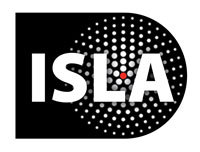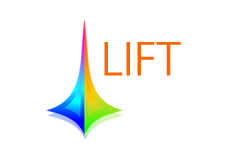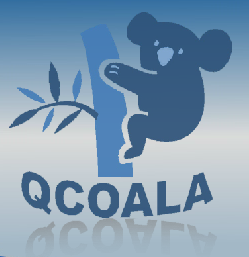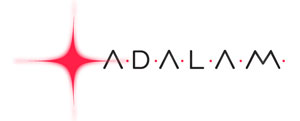Links
Links to other EC funded projects researching lasers for manufacturing:
ADALAM (H2020)
Sensor-based adaptive laser micromachining using ultrashort pulse lasers for zero-failure manufacturing
The goal of the project is to develop an adaptive laser micromachining system, based on ultrashort pulsed laser ablation and a novel depth measurement sensor, together with advanced data analysis software and automated system calibration routines. This technology will be tested in three different application scenarios: micromachining, defect removal on wafer carriers and texturing of complex tool features.
APPOLO (I4MS)
The APPOLO project focuses on emerging innovative laser technologies and processes, which need to be customised, tested and validated before being able to compete in the market. The project brings together the demand of end-users and the knowledge of application laboratories with equipment manufacturers to facilitate faster validation of the process feasibility and adaptation of the laser technology and equipment. All activities are arranged in assessment value chains that include testing, integration, validation and the assessment of the processes at end-user’s facilities.
BRIDLE (FP7)
 Brilliant Industrial Diode Laser
Brilliant Industrial Diode Laser
This ambitious project, also funded through FoF, is working towards a diode laser producing >2kW from a 100 μm OD optical fibre with an of efficiency >40%. Fraunhofer ILT is also a partner in BRIDLE.
![]() COMBILASER (H2020)
COMBILASER (H2020)
COMBILASER has the vision to create a solution that minimizes human expert intervention in setup and operation of laser based manufacturing systems by integrating the industrial laser process with a seamless set up and a self-learning module. In doing so, it aims to reduce process optimisation loop for new applications addressing flexibility and ever more demanding standards in industry.
ISLA (FP7)
 Integrated disruptive componentS for 2 μm fibre LAsers
Integrated disruptive componentS for 2 μm fibre LAsers
ISLA has several partners in common with HALO, and is working on development of technology to establish 2 μm fibre lasers based on silica glasses. These lasers have the potential for extremely high power applications, as well as wavelength-specific advantages of 2 μm such as plastics material processing and bio-medical applications.
 LASHARE (I4MS)
LASHARE (I4MS)
LASHARE establishes Laser-based Equipment Assessment (LEA) as a tool for accelerated technology transfer. Currently, 14 LEAs focus on an increase in Technology Readiness Level of manufacturing equipment such as small high precision ultrafast sources for thin film processing, turnkey optical systems for parallel processing by laser beam splitting or plug and play direct diode laser modules for energy efficient warm forming of high strengths steels. The LEAs support 14 small and medium sized equipment suppliers across Europe in collaboration with 14 industrial users and six research hubs.
LIFT (FP7)
Leadership In Fibre laser Technology
Led by Fraunhofer ILT, this large Integrating Project has been working on novel fibre lasers for several years. G&H is also a partner in LIFT, and there are several areas of common interest with HALO.
MAShES (H2020)
MAShES aims to develop a breakthrough compact imaging system for RT closed-loop control of laser processing. It will be built on a novel multispectral optics and multisensor arrangement in the VIS-MWIR spectrum. Absolute temperature, geometry, and speed, will be imaged accurately and reliably. RT process control, and cognitive readjustment and process quality diagnosis will be embedded.
QCOALA (FP7)
Quality Control of Aluminium Laser-welded Assemblies
This project is also funded through the Factories of the Future (FoF) initiative. Led by The Welding Institute (TWI), the project concentrates on welding applications for lasers, and there is some interesting overlap with HAL applications. Fraunhofer ILT is also a partner in QCOALA.
Framework 7

HALO is supported by the European Commission under the Seventh Framework Programme (FP7)
HALO Consortium Site
 Consortium members can access the private area of this site by clicking here. If you do not have an account for this site, please contact Dr Bruce Napier at bruce@vividcomponents.co.uk.
Consortium members can access the private area of this site by clicking here. If you do not have an account for this site, please contact Dr Bruce Napier at bruce@vividcomponents.co.uk.




